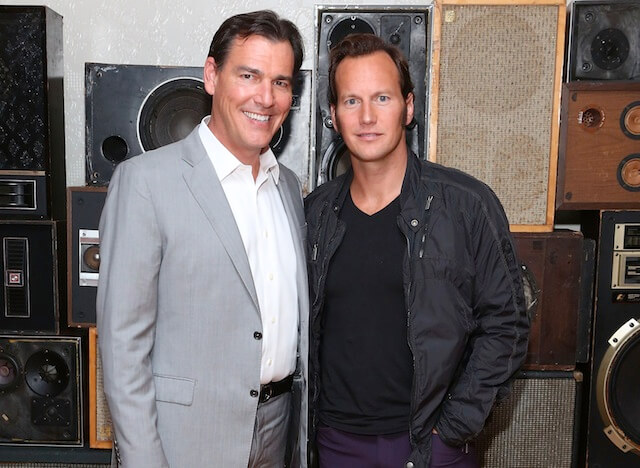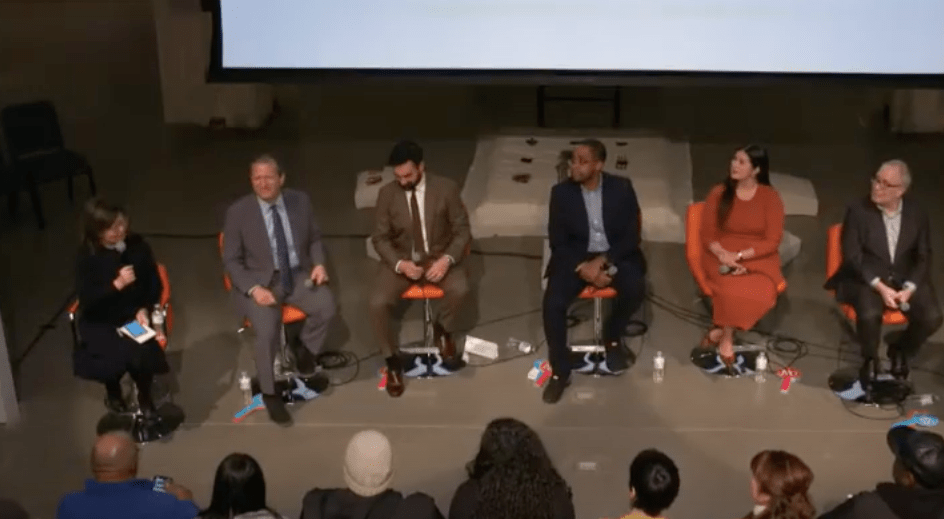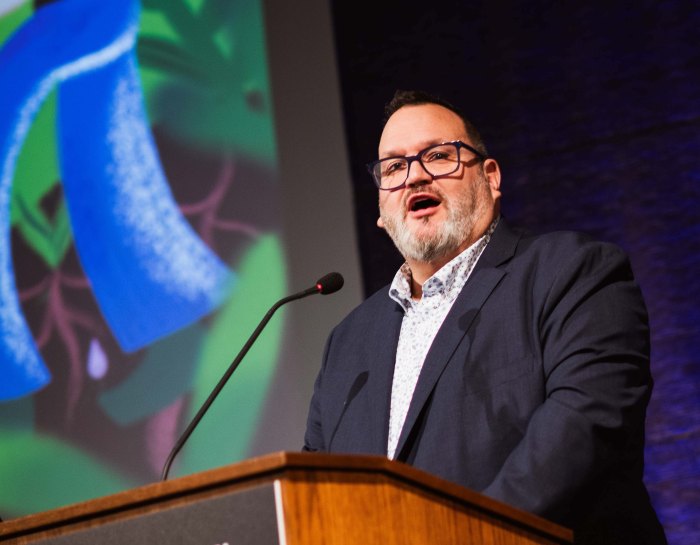Acclaimed actor Patrick Wilson has credited his brother, Paul, with first getting him into acting. Paul went on to become an anchor, while Patrick became a Broadway and screen actor, with a range that spans a Tony-nominated turn in “Oklahoma!” to the “Conjuring” and “Insidious” movies. The brothers Wilson (there’s a third, Mark) finally got to share the screen in “Big Stone Gap,” a character-driven dramedy, also featuring Ashley Judd and Whoopi Goldberg, about life in a Appalachian Virginia small town in the 1970s — which is in fact the very town the Wilsons would go to when visiting their grandparents. Paul, I noticed you had a listing on the IMDb for a small part in “Angels in America,” which was Patrick’s big screen breakthrough. Paul Wilson: That’s right. It’s funny because I think I was cut. I did shoot it, and that was a sweet thing. The incredible Mike Nichols allowed me to share some screen time with Patrick. RELATED: “Steve Jobs” isn’t a simplistic look at the Apple god (till the end) How did you wind up in this? Paul: I volunteered to help in any capacity, not really thinking it would be a role of this breadth. [Adriana Trigiana, writer and director] had a conversation about me playing John Warner [for a scene where Elizabeth Taylor, played by Patrick Wilson’s wife Dagmara Dominczyk, comes to town]. Patrick Wilson: She said, “Oh no, I want him to be Lyle.” Then I felt bad that I didn’t really think of that. It was a much better role.
Paul: Yeah, thanks a lot. [Laughs]
Patrick: I just had no idea it was already cast.
This takes place in the town where your grandparents lived. It seems like something you’d pounce on soon as you heard it was being made. Patrick: This is the most personal movie I’ve ever done. Our Wilson heritage is from there; our dad was born on that street, and our grandfather, and our great-grandfather. There’s a Wilson Road crossing a Wilson Bridge. We roll deep there. It’s the place we would spend summers while growing up. We knew we had to be a part of it in any capacity. All of our family was involved at some point. Paul: We learned to fish there. We played golf there. We would hike in the mountains. Our father would take us into caves that were Civil War munitions dumps. We spent every summer capturing crawdads in the creek. To be able to stay in my grandparents’ house, that my father grew up in, that was built for my father, it was incredibly sweet. That place was our Disneyland growing up. That’s where we went for the summer. We didn’t travel around the country. We traveled back to Virginia. The stereotype is that small towns like that seem unstuck in time. Is that still the case there? Patrick: I think so. The mountain mentality is a little different from the Southern mentality. It can be confused or stereotyped as simple, but it’s not simple. There’s an honesty and a direct nature to the people there that never goes away, no matter what the generation is. They tell you what’s on their mind and they’re very giving people. The ’70s in the coal mining boon, when it left there it left a lot of people in its wake. The economy really suffered. But the moral fiber is still the same. Paul: If anything I think this movie will remind us of that small town sensibility, that authentic way of living and doing business. The World Wide Web and this global community tends to homogenize us to a degree. There’s an authenticity to these people that this movie celebrates, along with the sense of family and belonging. Shooting there must also give a lot of authenticity to the movie. Patrick: I think it would have turned out differently if we had shot it somewhere else, and not just scenically. It just really affected everybody. Every day you’d come to work and someone had just handed you a freshly baked pie. That’s just the way those people are. It’s very refreshing. We all had the same bond down there, because, look, there’s only one or two restaurants down there anyway. [Laughs] RELATED: Garrett Hedlund talks “Pan,” poetry and his memories of Peter O’Toole Were there specific experiences shooting it that really stuck out? Paul: The bittersweet part for me and Patrick was staying in our grandmother’s house. She had passed away nine months prior to us shooting, so that was a tough feeling. Our grandparents were friends with Adriana’s family. When we got to the production offices during the first week of shooting, we saw our grandmother’s mink coat. Someone had picked it up and bought it at a yard sale. Which is funny because our grandmother told us before her passing, “Don’t you sell those minks at a yard sale.” And of course our brother did, because she didn’t need to take them with her, of course. That was a sweet moment seeing the mink coat hanging in Adriana’s door — like a part of our grandmother was watching. Patrick: I wore my grandfather’s hat in a scene. I remember shooting a scene of me coming out of a hospital after the coal mining accident. I walked to my start mark, and I looked to the left and there was a plaque from the women’s auxiliary group for women who would help at the hospital, which is something my grandmother did right until she couldn’t anymore. There was a sign that said “Carol Wilson” on the plaque. This isn’t a very plot-driven movie. It’s character-driven. If there’s anything close to a focus it’s the push-pull between finding small town life comforting and limiting — wanting to get away and do something else. Patrick: Everyone can relate to that. We grew up in St. Petersburg, Florida. We all wanted to get out. I turned 18 and couldn’t wait to get out. Then you go back several years later and you realize how much you love it there. There’s just no cynicism in that town or this movie. For some people that’s very unusual to see. It is the nicest movie I’ve seen in a long time. Patrick: Exactly. And that’s good.
Paul: Although it’s set in 1978 there are other levels that are going to seem very contemporary. There’s a theme about 40 year olds getting married and falling in love, which right now I think resonates. Adult filmgoers may feel underserved and may not find these tentpole superhero movies as appealing. This story they can relate to, because it resonates right now, even though it’s a period piece.
Paul and Patrick Wilson on ‘Big Stone Gap’ and the glories of small town life

Getty Images
Follow Matt Prigge on Twitter @mattprigge





















